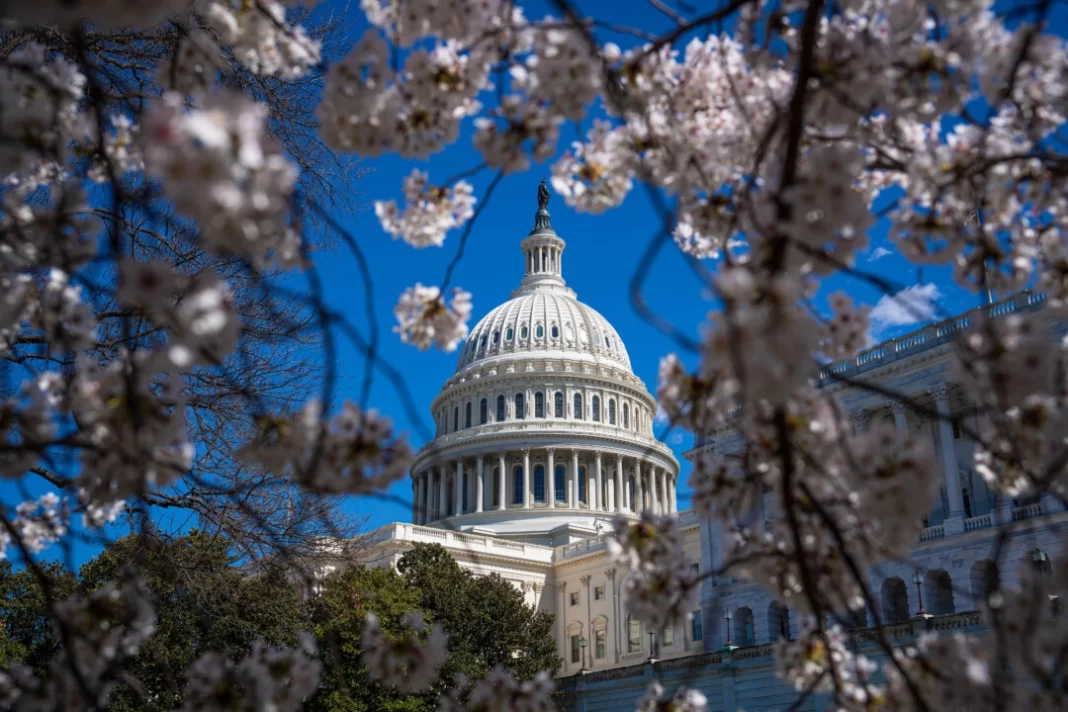The Republicans and Democrats each got policy victories in the second tranche of appropriations legislation.
In the wee hours of March 21, the text of the second appropriations bill—totaling $1.2 trillion—to fund most of the U.S. government was unveiled.
The second tranche of spending legislation covers 70 percent of the federal government. This includes the Defense, Treasury, Homeland Security, Labor, Health and Human Services (HHS), Education, and State departments.
If Congress does not pass the bill by March 23, a partial government shutdown will occur.
Here’s how the bill breaks down.
Defense Department
The Pentagon would get $825 billion in total.
It includes a 5.2 percent increase in basic pay for members of the military—the largest basic pay increase in two decades.
It allocates $92 million more than requested by the Biden administration to improve U.S. Indo-Pacific Command’s deterrence amid the threat from China. There is $108 billion allocated for U.S. security cooperation with Taiwan and $300 million for the Ukraine Security Assistance Initiative, which consists of training, equipment, and other means to aid Ukraine.
However, direct funding for Ukraine and Taiwan is not in the spending bill as Congress is stuck trying to pass a supplemental assistance package for Taipei and Kyiv as Republicans have called for stringent border measures in exchange. The GOP blocked a Senate bill that consisted of assistance for Ukraine and the Indo-Pacific, including Taiwan, and some specific border security measures.
The annual $3.3 billion for Israel is in the bill, as has been the case for the past several years.
The bill consists of $343 million—$100 million more than requested by the White House—for the Pentagon’s usage of artificial intelligence.
Treasury Department
The bill allocates $1.8 billion to the Treasury Department, minus the IRS, which would get $12.3 billion.
The Treasury Department would get $22.9 million less than in the 2023 fiscal year, although its Office of Terrorism and Financial Intelligence would get $226.9 million, $10.8 million more than it got in the 2023 fiscal year.






